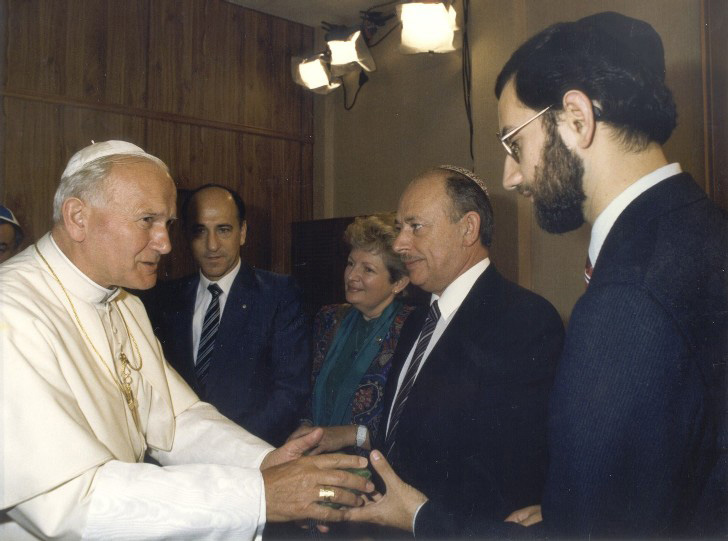Australia/Israel Review
The Last Word: A Date to Remember
Oct 28, 2015 | Jeremy Jones

Jeremy Jones
October 28, 1965 is a date which should be respected and honoured.
It was on this day, at the meeting of the Second Vatican Council, that the Catholic Church adopted the declaration Nostra Aetate, effectively acknowledging that close to two millennia of teaching of contempt towards Jews had brought about shameful, terrible real world consequences and that the only moral path was to formulate a new template for Catholic understanding of Jews and Judaism.
When I first became involved in Australian political life, many of the people I met, particularly in the Labor Party and Trade Union movement, were practising Catholics and/or had been educated in the Catholic school system. They introduced me to the concept of “post Vatican II Catholics” who were pointedly not antisemitic, in marked contrast to others who had not imbued the contemporary teaching of their Church.
In the Jewish community it was, and to a far lesser degree still is, common to hear characterisations of Christians as fundamentally antisemitic – the evidence offered for this being the impact of Christian preachers and identifying-Christian politicians on the lives (and persecution) of Jews in Eastern and Central Europe in the first half of the twentieth century. But younger people have not only grown up in a time of Vatican II’s teaching of Jews as members of the family rather than contemptible “others”, but also in a time when this has resulted in action beyond words.
I have vivid memories of the day in 1986, in St Mary’s Cathedral in Sydney, where Pope John Paul II declared that antisemitism was a sin. Although I was a generation younger than the rest of the Jewish delegation, it was evident to me that this represented a seismic break with history.
In the years after Nostra Aetate and the Sydney meeting, the Vatican has established diplomatic relations with Israel and commenced real and meaningful self-examination as to how the Shoah was able to take place in Christian Europe.
Since 1999, the Australian Catholic Bishops’ Conference has co-hosted annual “Conversations” with the Australian Jewish community. As a foundation participant and the Jewish Co-Chair, I can testify to the unparalleled spirit of intellectual enquiry, friendship and zeal to learn about and from each other amongst the assembled bishops, rabbis, members of religious orders, academics and lay-people fortunate enough to be in the select gatherings.
Internationally, the International Catholic-Jewish Liaison Committee – bringing together delegates from the Holy See’s Commission for Religious Relations with the Jews and from the International Jewish Committee on Interreligious Consultations – has convened more than twenty conferences designed to further understanding and cooperation, beginning in the early 1970s.
As a delegate to the 21st meeting in Paris in 2011 and the 22nd meeting in Madrid in 2013, I witnessed, and hopefully contributed in some way, to the development of a genuine, substantive exchange of ideas and information designed to develop collaboration in the interests not just of Catholics and Jews, but to all humanity.
While Dominicans know full well that they are not Franciscans, and Catholics know they are neither Protestant nor Eastern or Apostolic, to many non-Christians the distinctions are far less clear.
This has added weight and value to the impact of Nostra Aetate – which is a beacon of goodwill and a testimony to the possibility of real institutional change and reform, leading from hostility to fraternity.
Much of contemporary public debate relating to religion is concerned with the question of religious, particularly Islamic, extremism.
Regardless of specific theological templates and denominational nuances, what all those who engage in religiously rationalised acts of violence and brutality have in common is that they identify others not just as different but lesser – not deserving tolerance, let alone to be treated with dignity.
Political leadership which rewards genuine commitment to interfaith dialogue and verifiable respect for the rights of others is not only appropriate, but may prove to be the most important weapon we have in the anti-extremism armory.
This article is featured in this month’s Australia/Israel Review, which can be downloaded as a free App: see here for more details.
Tags: Australasia






